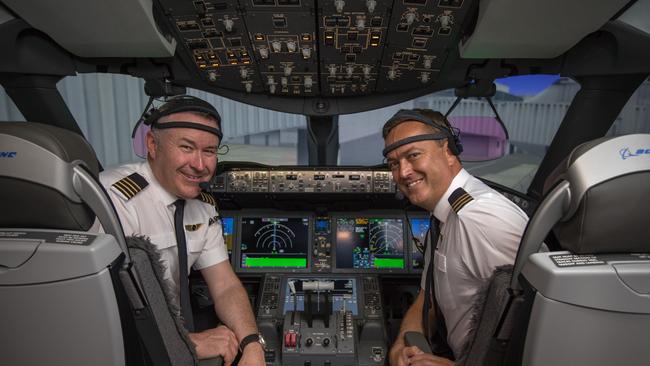Longest haul flight test for Qantas
A 19½-hour Qantas flight from New York to Sydney on Saturday will break a record.

The almost 16,000km trip will take close to 20 hours, making it the longest commercial passenger flight ever, at almost an hour longer than Singapore Airlines’ Newark-Singapore service.
Qantas wants to make the ultra-long haul flight part of its international network from 2023, along with non-stop services from Australia’s east coast to London and Paris.
The aircraft being used for the test flight is a new Boeing 787-9 which does not have the capability to fly such a distance with a full payload.
For that reason, only 50 people carrying minimal luggage will board the aircraft, about a fifth of its normal capacity.
Throughout the marathon journey, researchers from the Co-operative Research Centre for Alertness, Safety and Productivity will monitor the brain activity of the four pilots and six cabin crew on-board to help to develop optimum work-rest patterns. Pilots will also provide urine samples before, during and after the flight to track melatonin levels, which tend to peak at night, promoting sleep.
Six volunteer passengers will follow a set sleep, food and beverage and physical movement schedule, designed by scientists from the University of Sydney’s Charles Perkins Centre. The program is aimed at reducing fatigue and jet lag, and data gathered over the 19½-hour flight will be used to inform future in-flight services and product design.
Qantas chief Alan Joyce has promised to include a stretching and hydration area within the economy cabin of aircraft conducting Project Sunrise flights.
The aeroplanes in contention are the Airbus A350-1000, which is already in service with Cathay Pacific, and the Boeing 777X-8, which is yet to be certified.
Mr Joyce, who will be among those on board Saturday’s flight, said the project was about “pushing the boundaries even further”.
“We know we need to think harder about crew and passenger wellbeing when you’re airborne for almost 20 hours, and that’s why this research is so important,” he said. “A lot of what we’ll be doing is world-first.”
He said the passenger research would test alternatives to how airlines had managed in-flight service for decades.




Qantas will fly into the history books at the weekend when a passenger jet carrying 50 people travels from New York to Sydney non-stop in the first Project Sunrise test flight.